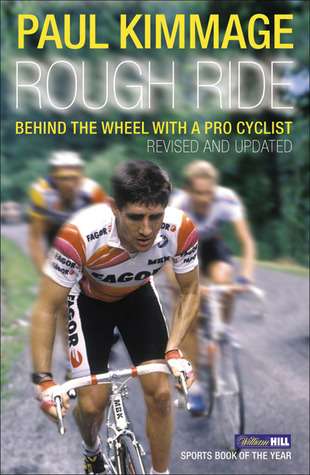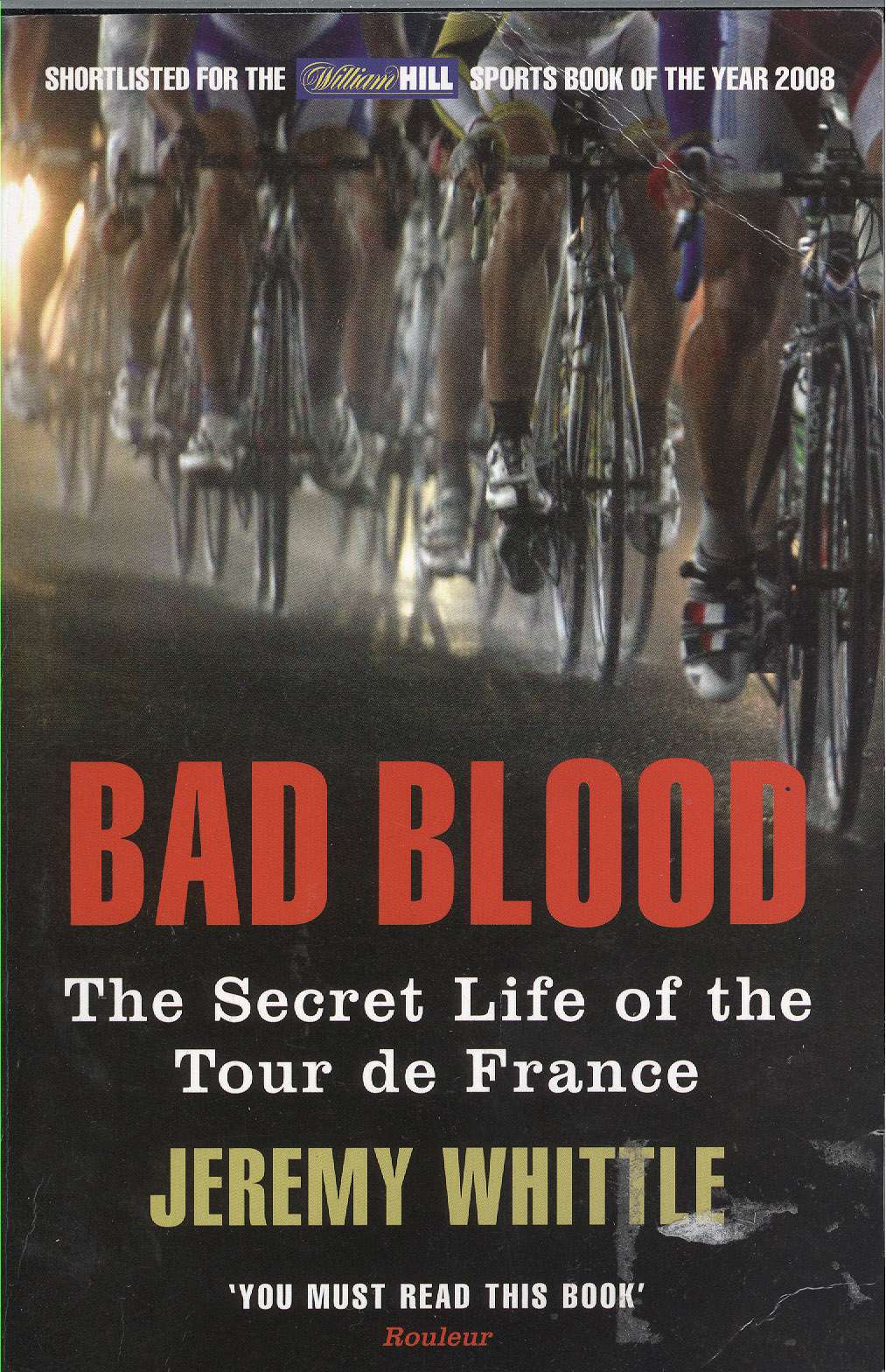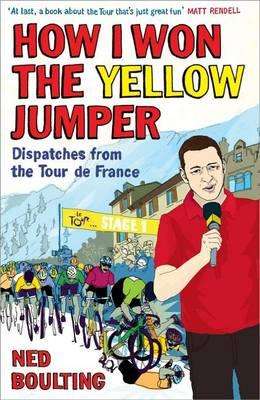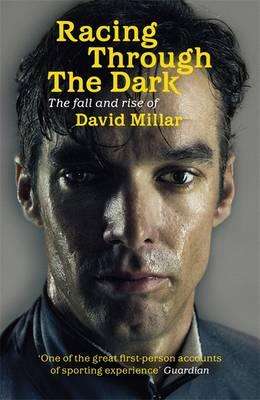Recently, I got a Kindle. What a terrific little device. I didn’t know a great deal about eBook readers, but this was an offer too good to refuse. Since owning it, I have been reading quite a lot more than I was previously.
I finally got around to searching Amazon for some cycling books. I remember the name Paul Kimmage from that confrontation he had with Lance Armstrong at a press conference, so I thought I would grab his book, Rough Ride.

First published in 1990, Rough Ride is one of the greatest books ever written about the life of a professional athlete. Almost twenty years later, Yellow Jersey is publishing an updated edition of this cycling classic, with a new foreword by the author which reflects on his life both inside and outside the sport.Paul Kimmage’s boyhood dreams were of cycling glory: wearing the yellow jersey, cycling the Tour de France, becoming a national hero. He knew it wouldn’t come easy, but he was prepared to put in the graft: he spent his teenage years cycling an average of 400 miles per week.The dedication began to pay off. As an amateur, he represented his country and finished sixth in the World Championships. In 1986 he turned professional. That’s when reality hit. He soon discovered it wasn’t about glory and courage, and it wasn’t about how much training you put in or how much you wanted to win. It was about gruelling defeats, complete and utter exhaustion, and it was about drugs. Not drugs that would ensure victory, but drugs that would allow you to finish the race and start another day.Paul Kimmage left the sport to write this book. It is a powerful and frank account that breaks the law of silence surrounding the issue of drugs in sport. An eye-opening expose and a heartbreaking lament, it is a book that anyone interested in any sport should read.
This was a real eye opener into the darker side of professional cycling and doping. I wanted to know more, and one book I had heard about was Jeremy Whittle’s book, Bad Blood.

For Jeremy Whittle, there isn’t much in life as spectacular as the Tour de France: sweat-streaked, taut and burnished athletes toiling across vast and ancient European landscapes, hundreds of thousands of fans lining the route. The twisting Mediterranean roads, the jerseys, the peloton in full flight – these have become as familiar to him as the lines around his eyes. And then there are the riders: men of almost superhuman capabilities, men who have become his friends, men whose stories he has written day in day out for the past decade. But even the biggest fan can one day wake up to find that he has lost his faith.We all want to believe in our heroes. That’s why Jeremy got into cycling. But what happens when you can’t? When you’ve seen too many positive dope tests, when you’ve been lied to too many times, when your sport is destroying itself from within? Bad Blood is the story of Jeremy Whittle’s journey from unquestioning fan to Tour de France insider and confirmed sceptic. It’s about broken friendships and a sport divided; about having to choose sides in the war against doping; about how galloping greed and corporate opportunism have led the Tour de France to the brink of destruction. Part personal memoir, part devastating exposé of a sport torn apart by drugs and scandal, Bad Blood is a love letter to one man’s past, and a warning to cycling’s future.
After two book talking about the darker side of the sport, I was after something a bit lighter. Having listened to the Real Peloton Podcasts, I thought I would give Ned Boulting’s book, How I Won the Yellow Jumper: Dispatches from the Tour de France.

‘Paris, 4 July 2003: My first Tour de France. I had never seen a bike race. I had only vaguely heard of Lance Armstrong. I had no idea what I was doing there. Yet, that day I was broadcasting live on television. I fumbled my way through a few platitudes, before summing up with the words, “…Dave Millar just missing out on the Yellow Jumper.” Yes, the Yellow Jumper.’Follow Ned Boulting’s (occasionally excruciating) experiences covering the world’s most famous two-wheeled race. His story offers an insider’s view of life behind the scenes of the Tour, as well as detailing the complexities and absurdities of reporting on the race and confronting the most celebrated riders – Cavendish, Wiggins, Armstrong et al – seconds after they cross the line.Eight Tours on from Ned’s humbling debut, he has grown to respect, mock, adore and crave the race in equal measure. What’s more, he has even started to understand it. Funny and frank, How I Won the Yellow Jumper is the account of Ned’s journey – that same journey undertaken by many tens of thousands of cycling enthusiasts – from tour trainee to incurable fanatic.
This book is a terrific look into the behind the scenes workings of the media and the Tour de France. In the book, Boulting talks about David Millar. He was also mention in Whittle’s book, bad Blood. Time to grab the David Millar book, Racing Through the Dark: The Fall and Rise of David Millar.

By his 18th birthday David Millar was living and racing in France, sleeping in rented rooms, tipped to be the next English-speaking Tour winner. A year later he’d realised the dream and signed a professional contract with the Cofidis team, who had one Lance Armstrong on their books. He perhaps lived the high life a little too enthusiastically — high on a roof after too much drink, he broke his heel in a fall, and before long the pressure to succeed had tipped over into doping. Here, in a full and frank autobiography, David Millar recounts the story from the inside: he doped because ‘cycling’s drug culture was like white noise’, and because of peer pressure. ‘I doped for money and glory in order to guarantee the continuation of my status.’ Five years on from his arrest, Millar is clean and reflective, and holds nothing back in this account of his dark years.
Millar’s book put me into a state of confusion. I didn’t know whether to love or hate him. A repentant doper that I admired, but the story of his early career and the way he lived made me think he was a bloody idiot. In the end, I must say that I am now a Millar fan. He will have to live with the tag doper for the rest of his life, but he seems to be one of the few people that have been caught that are actually trying to do something to clean up the sport and remove the omerta, the code of silence that protects the cheats.
If you have any other cycling books you can recommend, please do so in the comments below. I have just last night bought the latest in a raft of Eddie Merckx books, Merckx: Half Man, Half Bike. I will report back when I have finished it.
Book descriptions from Amazon.com

Maybe Slaying the Badger?
Tim Krabbe’s “The Rider” is excellent – a first-person account of a fictitious bike race. I also liked “Hell on Two Wheels” (an account of the Race Across America), and Robert Penn’s “It’s All About the Bike” (his account of building his dream bike, with a lot of history of the bicycle and various manufacturers).
For history and designing his ultimate bike, “It’s All About the Bike: The Pursuit of Happiness On Two Wheels” by Robert Penn.
On Tour by Bradley Wiggins is great too; it’s more of a visual book but if you do get hold of it it’s a great insight to his feelings and what went on when so much was expected of him.
*update* – I didn’t read Hamish’s comment about Robert Penn’s book. But it is good and worth the read!
If you want some up to date doping information check out The Clinic forum in the Cyclingnews website. The knowledge some of the more serious posters on there drop is insane.
Thanks Dave, I will sign up.